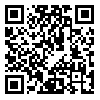Articles accepted at the time of publication
Back to the articles list |
Back to browse issues page
1- Farhangian University , a.r.eghtesadi@gmail.com
2- Hakim Sabzevari University
2- Hakim Sabzevari University
Abstract: (2337 Views)
Teacher reflection and self-efficacy beliefs are two important teacher characteristics that influence different aspects of teaching jobs. The relationship between these two constructs is important, but the previous research has focused on the effect of reflection on self-efficacy. This mixed-methods study aimed at assessing the interrelationships between reflection and self-efficacy through surveying 330 Iranian English language teachers in the quantitative phase and interviewing 15 teachers in the qualitative phase. The quantitative data were analyzed through a Partial Least Square approach and the qualitative data through a conventional content analysis. Results show the two variables are closely interwoven, but reflection components were better predictors of self-efficacy. Metacognitive, cognitive, and affective reflection were significant predictors of self-efficacy and its components, but critical reflection did not predict any aspect of reflection. Efficacy for classroom management could predict practical and cognitive reflection, and efficacy for student engagement could predict practical, affective, and critical reflection. These findings imply that metacognitive, affective, and cognitive reflections need to be encouraged in English Language Teaching preservice and inservice teacher education programs, and workshops need to be enriched and focus on practical teaching issues and classroom management strategies, and learner engagement techniques.
Keywords: metacognitive reflection, cognitive reflection, affective reflection, efficacy, classroom management, student engagement, PLS
Article Type: Research article |
Subject:
language teaching
Send email to the article author
| Rights and permissions | |
 |
This work is licensed under a Creative Commons Attribution-NonCommercial 4.0 International License. |







